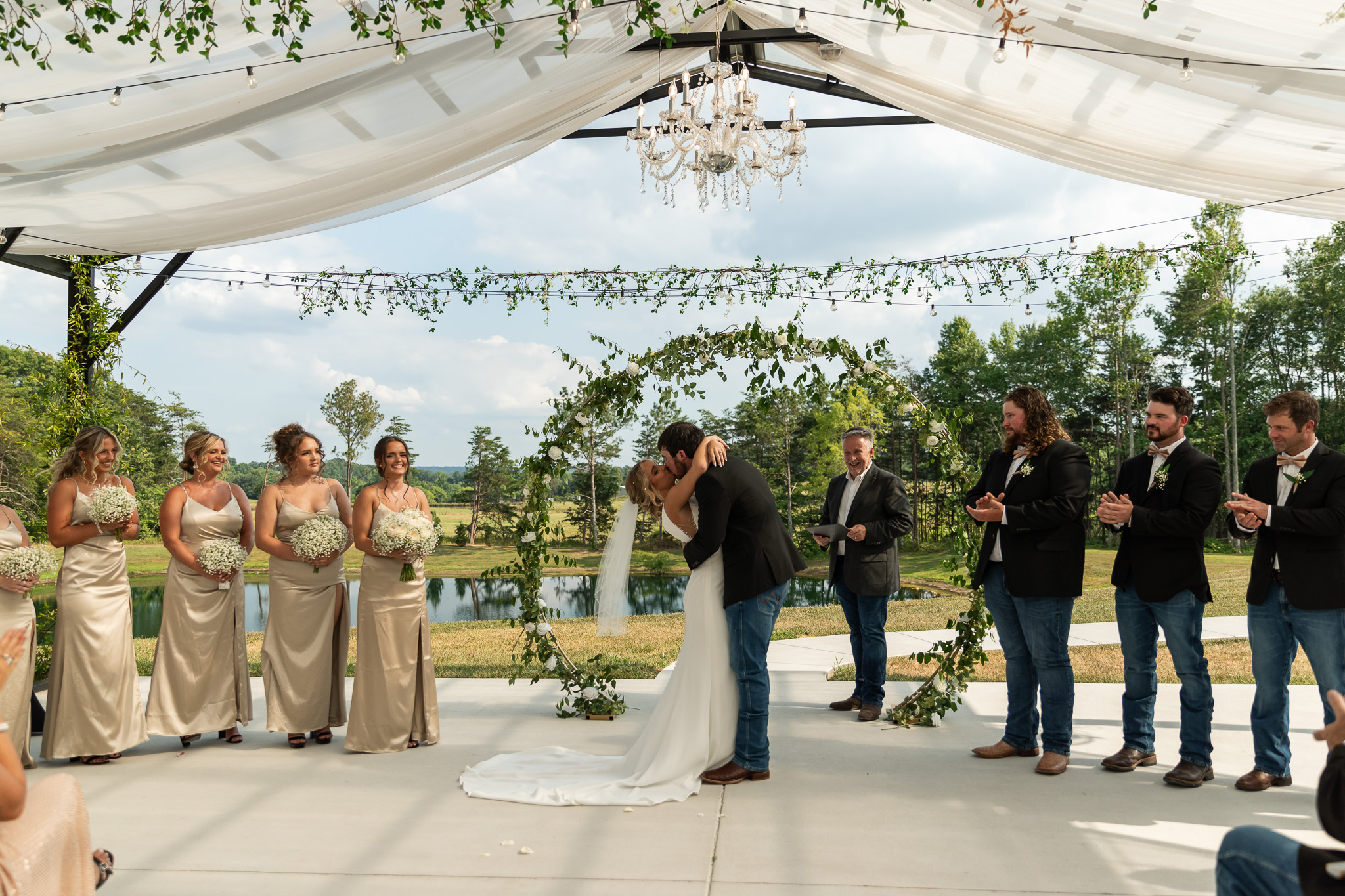
Best Time for Wedding Ceremony: Creating Your Wedding Timeline
Filed in Resources — August 18, 2024
Setting the perfect wedding ceremony time is a crucial step in planning your big day. It influences not only how your day unfolds but also the experience your guests will have. Not to mention the quality of your wedding photos! Selecting the best time for your wedding ceremony involves balancing several factors: time of year, lighting for photography, venue restrictions, your dinner start time and your reception end time.
Choosing your wedding ceremony start time might seem straightforward, but it requires thoughtful consideration. You’ll want to think about how the time affects the entire timeline of your wedding day, including when guests arrive, when you’ll be able to take photos, how your day will transition from ceremony to reception, and setting the right mood for your dance floor. You’ll also want to be mindful of your budget and priorities- having an early ceremony and a long reception means you’ll need additional hours with your DJ, Photo Team, Planner, Bartenders and you’ll also need to provide more food for your guests; in other words, the costs can add up quickly.
Sunset: The Most Crucial Factor to Consider When Setting Your Ceremony Time
The very first thing I want you to do is head over to Time and Date’s sunset calculator and discover what time the sun sets on your date.
Keep in mind that depending on your exact location sunset could be as late as 9:30pm in the summer or as early as 4pm in the winter (or even more extreme!) Consider this and your vision for the timing and flow of your big day when picking your date!!!
https://www.timeanddate.com/sun/
Next, are you doing a first look? Most of my couples do opt for a first look, because it allows them to more fully enjoy their wedding day together, but it isn’t the right decision for everyone. (Check out my post: 5 Reasons to have a First Look Wedding Day )

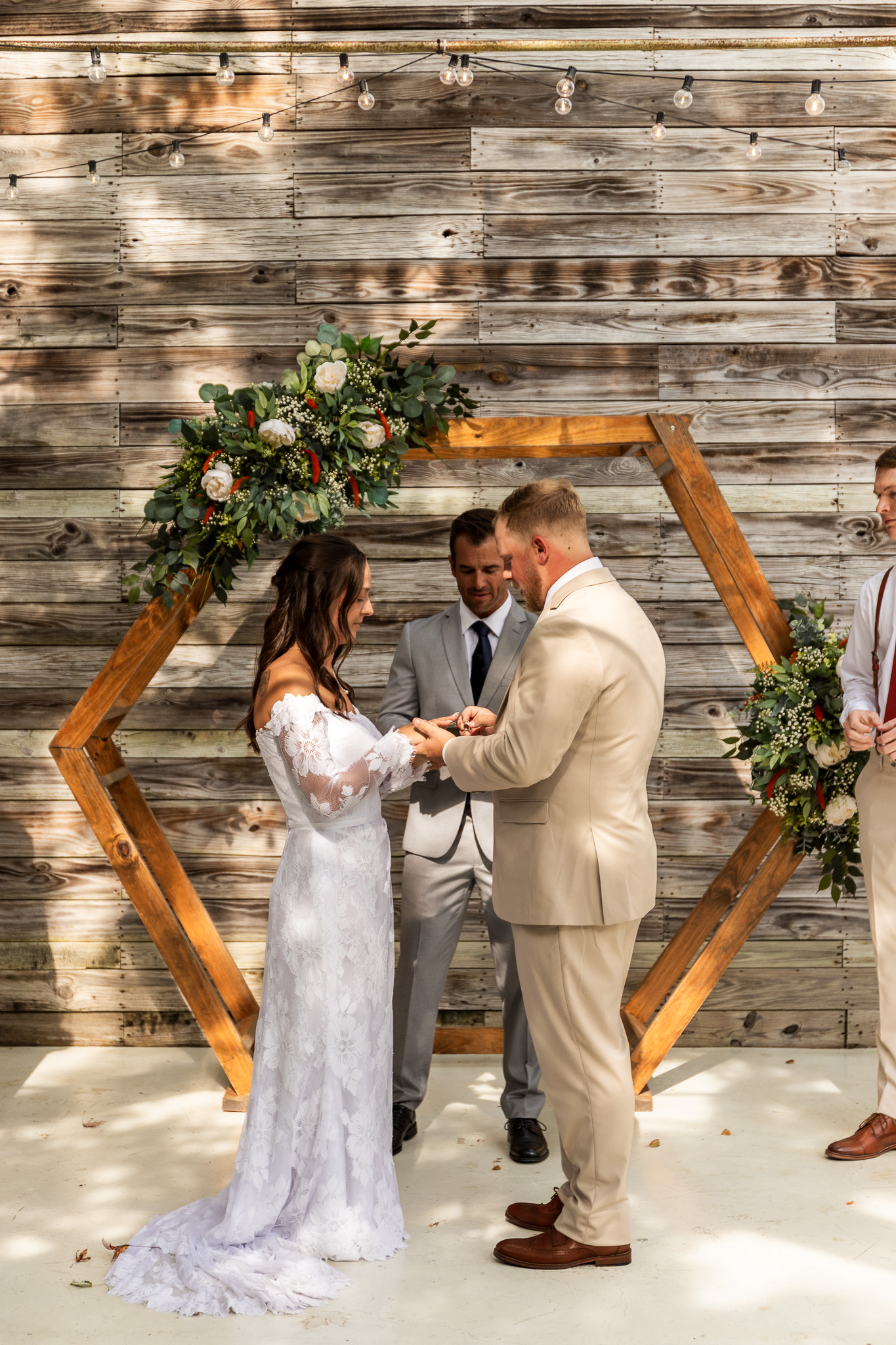
If you are doing a first look:
Take your sunset time and subtract 60-90 minutes. For example if sunset on your date is 6:42, I would recommend a 5:30pm ceremony. We will be able to do most of your group formals before the ceremony and the bulk of your couples photos as well. This would put your cocktail hour during golden hour and will allow for a quick sunset session with you and your new spouse without being interrupted during the reception.
For those of you opting to not see each other until the ceremony:
Take your sunset time and subtract 2 hours. So going back to the 6:42 example, your ideal ceremony time would be 4:30pm; I tend to air on the side of caution here because I don’t want to run out of light. There are so many important photos that have to be taken between the ceremony and reception- Family photos, Wedding Party photos and most importantly your couples session! Ideally your couples session would fall in the sweet spot of golden hour: 30 minutes before sunset. However, if for any reason we are running behind, if we ran out of light while taking photos of the newlyweds I would be gutted.
The Role of Photography in Setting Your Wedding Ceremony Time
As a wedding photographer, I’ve seen firsthand how the time of your ceremony can impact your photos. Natural light plays a crucial role in how your images turn out, especially during outdoor ceremonies.
Remember, that I can make adjustments around the lighting when photographing other elements of your day such as wedding party formals or your couples photos. But during the ceremony no adjustments can be made; it is what it is. I’m always especially sad when the sun is directly in your face; it’s uncomfortable, hard not to squint and it makes it challenging to look into one another’s eyes. Additionally, having harsh light on one person while the other is in shadow creates disjointed imagery that is difficult to balance properly.
The best time for a wedding ceremony is often dictated by the sun’s position, as the light changes throughout the day.
Golden Hour: The Photographer’s Dream
Golden hour, the period shortly after sunrise or before sunset, offers the most flattering light for photos. Scheduling your ceremony to end an hour before sunset allows for stunning post-ceremony portraits during this magical time.

Avoiding Harsh Midday Light
If you’re planning an outdoor ceremony, try to avoid the midday sun. The light is often harsh and can create unflattering shadows. A ceremony time around 5-6pm, depending on the season, typically offers softer light that is ideal for swoon worthy photos.


What Time do Weddings Usually Start and End
There is no one size fits all answer to this question, it will vary based on time of year, day of the week, your region and more. So understand that all of this is subjective and will alter based on your date, location, vision and vibes. However
Let’s work backwards. One question to ask while venue shopping is what time you will have the space. Most often the last hour will be allocated for clean up so that the space is clear and everyone has left the premises by 11pm. For example if you have the venue til 11pm your reception would need to end at 10pm. This is a pretty standard end time, but of course every venue is different and it varies by region.
You can anticipate your guests spending approximately 5-6 hours at your wedding. You know your guests and will be able to anticipate their needs more specifically, for example if many of your guests have young children it isn’t realistic to expect them to party with you until the wee hours.
Summer Wedding Timeline
Daylight is longer during the summer, giving you more flexibility with start times, but it also means the basic calculation doesn’t work out in a way that’s logistically possible. Ceremonies often start between 5-6pm, ensuring you can capture beautiful, natural light in your photos while also allowing enough time for an evening reception. This has become the summer wedding standard because it works. I don’t recommend going much earlier as neither you nor your guests want to be sitting outdoors at the heat of the day, additionally the lighting will be harsher.

Winter Wedding Timeline
With shorter daylight hours, fall and winter weddings typically start earlier. A ceremony around 2-3pm ensures you have enough daylight for photos and cocktail hour, especially if you want to avoid the chill of the evening. Other things to consider with a winter wedding is that even if you are holding your ceremony indoors natural light still has a huge effect on the overall quality and feel of your photos. Additionally, I find using flash during the ceremony takes away from that special time for both you and your guests and unless the ceremony space is consistently daylight balanced you run the risk of having mixed light sources that will create conflicting unnatural color casts.
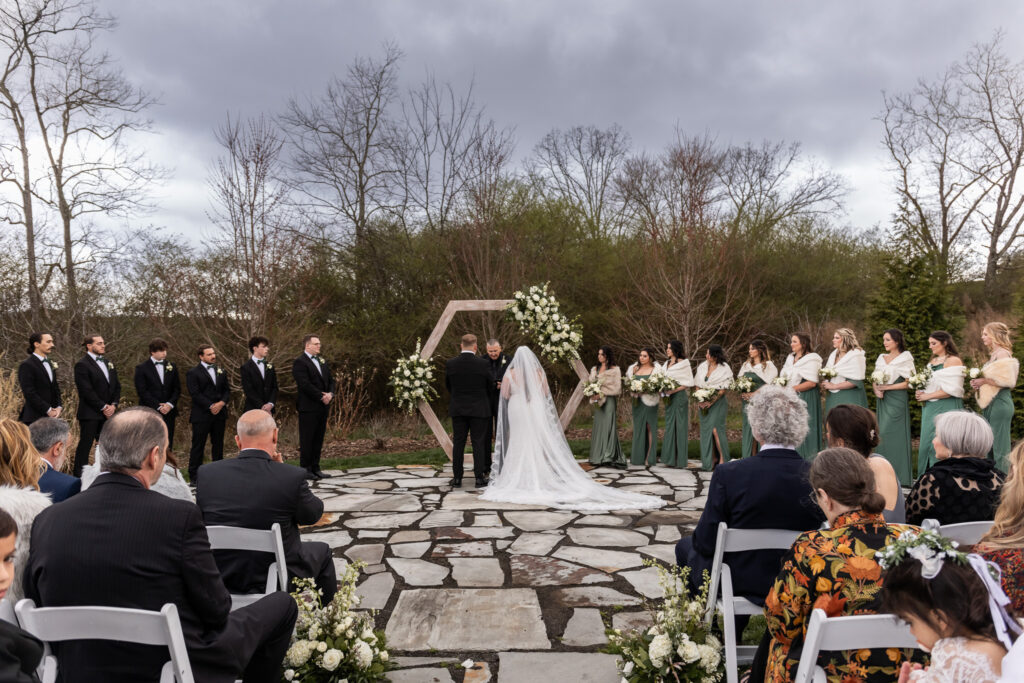
What Time Should a Weekday Wedding Start?
If you’re hosting a weekday wedding, consider that your guests might be working during the day and may have work the following day. A later ceremony start time, such as 5-6pm, allows guests to attend after work and stay for the evening festivities. Be aware that if your wedding date is on a Sunday, Monday, Tuesday, Wednesday or Thursday there is a possibility that your guests will have work the next day. Set realistic expectations for how long they will be able to stay at your party.
It is still important to keep sunset in mind, I find that weekday weddings are a poor option in the winter given the early sunset time. However, they are great in the summer and are typically cheaper as many venues and vendors offer discounted rates.
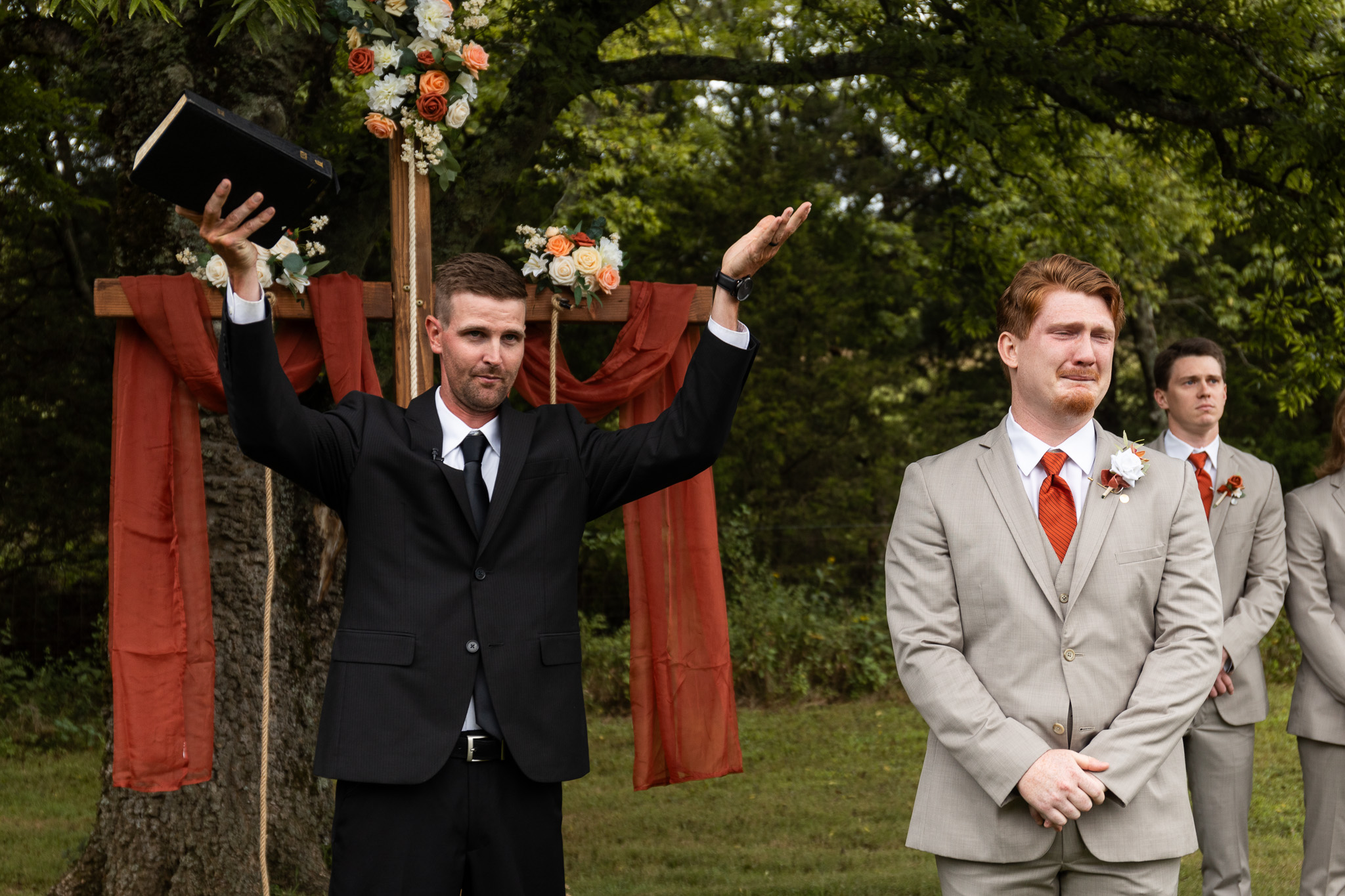
How I Work: A Sample Wedding Timeline for 5PM Ceremony
As a general rule, I want to arrive 4 hours before your ceremony begins. So, let’s look at what a timeline for 5pm ceremony might look like. Keep in mind every photographer is different; this example timeline reflects the approach of L.Morgan Photography only.
1pm: Detail Photos
- The very first thing I’ll do when I arrive is take some exterior photos while walking around and familiarizing myself with the venue and start making mental notes of certain spots for certain things. From here I will photograph your dress and set up your flat lay.
- Hair and Makeup should be wrapping up during this time
- Getting Ready Suites should be clean and tidy!
1:45pm: Getting Ready
- If you have matching outfits for your wedding party or anything fun planned for your getting ready time we’ll want to capture this!
- During this time we’ll pop a bottle of champagne and have a dance party (or whatever your vibe/plans are)
- Then I’ll typically head over to check on your boo and get some photos of them getting ready. During this time your wedding party should be getting dressed.
- When I get back we will get you dressed, capture some mock some touch-ups, put on any adornments such as jewelry, watch, veil etc
2:45pm: First Looks, Couple’s Session & Formals
- If we are doing a first look with the Wedding Party or Parents, I will typically do these first.
- Then it’s time to finally see the love of your life all dressed up in their wedding best! This is a great time to share private vows or exchange gifts.
- From there, I prefer to go straight into your couples session and ride that high coming out of your first look
- Then we will gather the wedding party for group photos and individuals
- Last but not least, time permitting, we’ll take your immediate family photos before the ceremony
4:30-5:30pm: Ceremony Prep & Ceremony
- We’ll get you guys tucked away so you have time to touch up, hydrate and have a snack before you have to assemble for the ceremony
- It’s time to say your I dos and celebrate your love with your friends and family! Most ceremonies last about 20-30min; any shorter and it will feel rushed, additionally, I will struggle to get various angles, any longer you’ll start to lose your guests attention. This is definitely the sweet spot, but I have seen many ceremonies that fell on either side of this range.
5:30-6:30pm: Cocktail Hour
- At this time we will complete your family photos and make up any photos missed prior to the ceremony, but since you did a first look, most of your photos are complete! Let’s get you to your guests and start this party!
- Ideally we would be in Golden Hour and could round out your couples photos with some lovely sunset photos.
- If joining Cocktail Hour is a priority I aim to get you to the last 20-30 minutes depending on other factors on your day.
6:45pm: Grand Entrance, First Dance, Welcome & Dinner
- Make your grand entrance and kick off the reception! I typically suggest going directly into your first dance then serving dinner.
7:45pm: Reception Activities
- Once everyone has their food it’s time for speeches, cake cutting, parent dances and any special activities you have planned like playing a game or doing a table dash.
- Then we can get that dance floor open! It’s your Paaartyyy!!!
9:45pm: Last Dance & Grand Exit
- If your reception is ending at 10pm we can close out your coverage with your grand exit! If not, I don’t necessarily recommend breaking up the dance floor for an exit. The exit signals that the night is over and regenerating all those amazing vibes is hard (talk to your DJ about this, I betcha they’ll agree). Pro Tip: If these photos are super important to you consider doing a mock exit with a select number of people
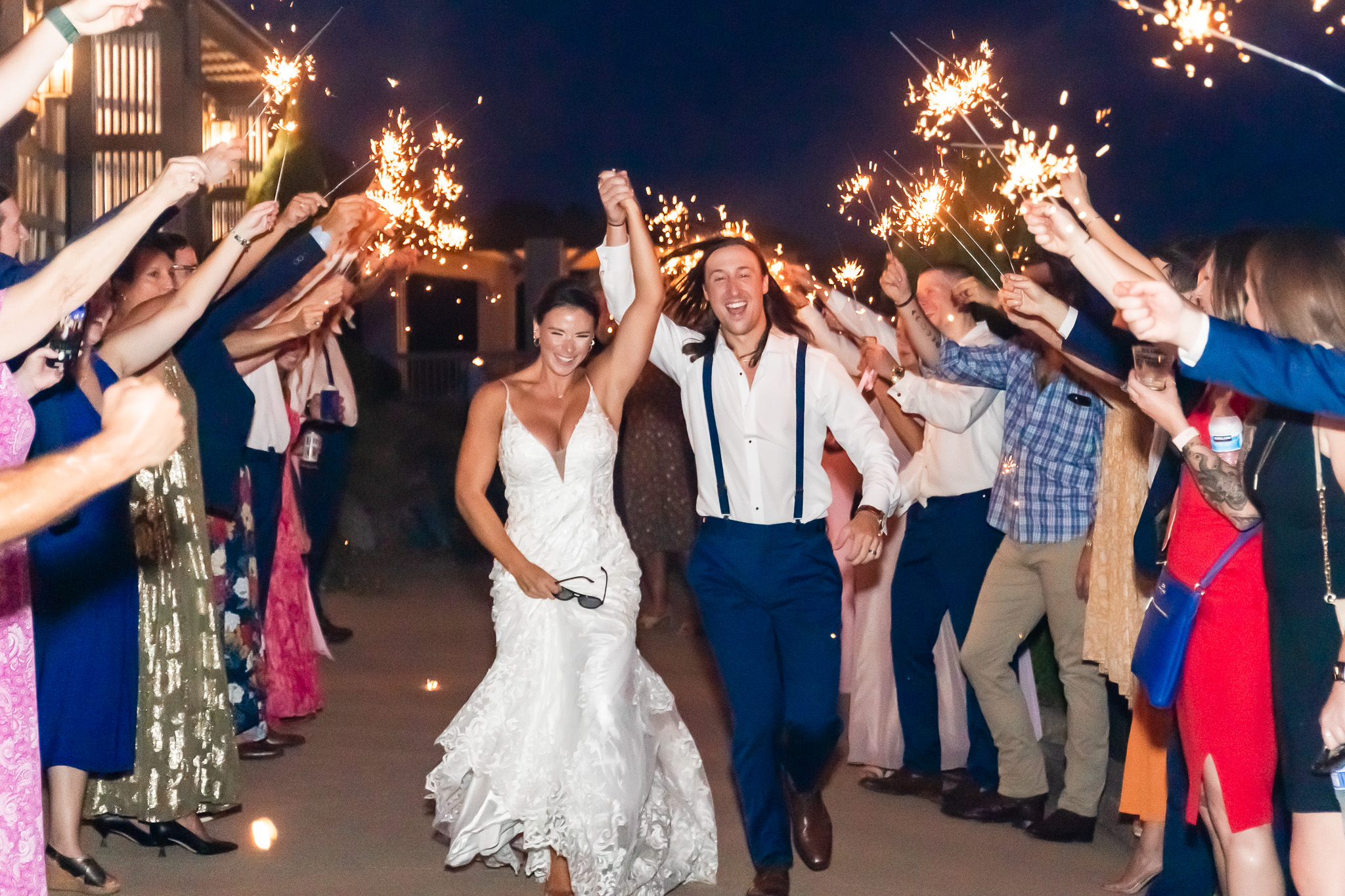
Final Thoughts: Creating the Perfect Wedding Timeline
Selecting the best time for your wedding ceremony is about more than just picking a time on the clock. It’s about ensuring that the day flows smoothly, that your guests are comfortable, and that your photos turn out beautifully. Consider your wedding’s season, the type of ceremony you envision, and the overall experience you want to create when deciding on your wedding ceremony start time.
I highly advise speaking with both your planner and photographer before committing to a ceremony time. With thoughtful planning, you can craft a wedding timeline that allows you to fully enjoy each moment, create the ultimate guest experience, and maximize your time and opportunities with your photographer.
Let your wedding team help you choose the right time will set the tone for a day that’s truly unforgettable.